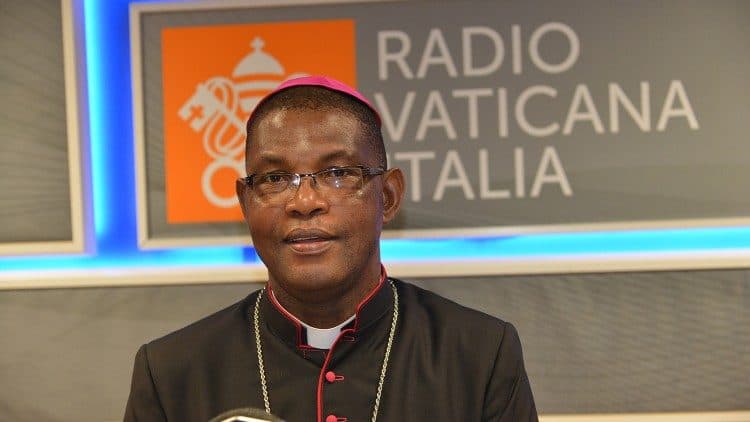YAOUNDÈ, Cameroon – In a remarkably blunt plea, a bishop in the African nation of Ivory Coast has urged laity to denounce priests who have a wife and children, or who are guilty of either sexual abuse or financial crimes, saying that silence about such matters risks the “sin of complicity.”
Bishop Gaspard Béby Gnéba of Man in Ivory Coast presented the invitation to report priestly misconduct in a Jan. 4 letter to the faithful of the diocese, titled “Urgent, Important and Necessary,” which he also had read aloud on the local Catholic radio station.
“Any lay faithful who knows that a priest is not faithful to his celibacy, has a wife or child, has committed sexual abuse or economic crimes, must have the courage to denounce him to the bishop, otherwise he commits a sin of complicity before God, the Pope and the Church,” Béby Gnéba wrote in the letter.
“The Pope speaks of zero tolerance towards these priests,” he added, providing information in the letter relating to the directives of Pope Francis and the Church on “the fight against sexual abuse, economic crimes among the clergy of Man, and the treatment of priests who have wives or children.”
Béby Gnéba essentially called on all priests with wives or children to leave the clerical state in order to devote themselves full-time to the welfare of their partners and children.
“They must come to see me as soon as possible to present their resignation,” he stated.
He deplored priests who “give the impression that the priestly celibate life has been suppressed, or that continence is optional.”
Although there has long been a strong taboo surrounding public discussion of situations in which Catholic priests take on wives and children in defiance of their vows, this is not the first time Church authorities in Africa have tried to respond.
In 2009, an investigation conducted by then-Archbishop Robert Sarah of Guinea, at the time the secretary of the Congregation for the Evangelization of Peoples, led to the resignations of senior prelates in the Central African Republic for allegedly having turned a blind eye to a widespread practice of clergy living with wives and children in parish structures.
More recently, the bishops’ conference of the Democratic Republic of Congo issued a document in March 2020 calling on priests with wives and children to request voluntary dismissal from the clerical state.
“Considering, on the one hand, the rights and obligations of parents regarding their children and children regarding their parents, and, on the other hand, the incompatibility of the role of ‘father of a family’ with the ministry and priestly life in the Roman Catholic regime, we ask every priest of the church-family of God who has a child to devote himself completely [to the child] and, to do so, to request dispensation from his priestly obligations from the Holy Father,” the bishops wrote at the time.
In 2019, the Vatican’s Congregation for Clergy (today the Dicastery for Clergy) acknowledged the existent of informal internal guidelines for cases of priests with wives and children, a fact originally brought to light by Irish layman Vincent Doyle, himself the child of a Catholic priest and the founder of “Coping International,” a group dedicated to defending the interests of the offspring of priests worldwide.
In general, those guidelines aim at expediting the procedures for granting laicizations for priests with children, with the idea of obtaining the necessary declarations with the arc of a couple of months.
Critics generally claim the Church hasn’t done enough to cope with the reality of priests with wives and children, often preferring to sweep the problem under the rug.
“The Vatican has dragged its heels on this issue, relegating us to invisibility, the invisible children,” Doyle said in a recent interview.
While there’s no indication that Ivory Coast, a nation of 30 million where roughly 17 percent of the population is Catholic, faces a particular challenge with regard to priests with wives and children.
However, the bishops of the country are generally known for traditional positions on matters of sexual morality. Recently, the Ivory Coast episcopal conference issued a statement in the wake of Fiducia Supplicans opposing the idea of blessing same-sex unions.
“We cannot conceal the risk of confusion and scandal that the blessing of same-sex couples could generate within our local Church,” the Ivory Coast bishops said.
The statement added that the bishops “reaffirm our attachment to the values of the family, of the sacrament of marriage between a man and a woman, as willed by God from the beginning” and asked priests “to refrain from blessing same-sex couples and couples in irregular situations.”














